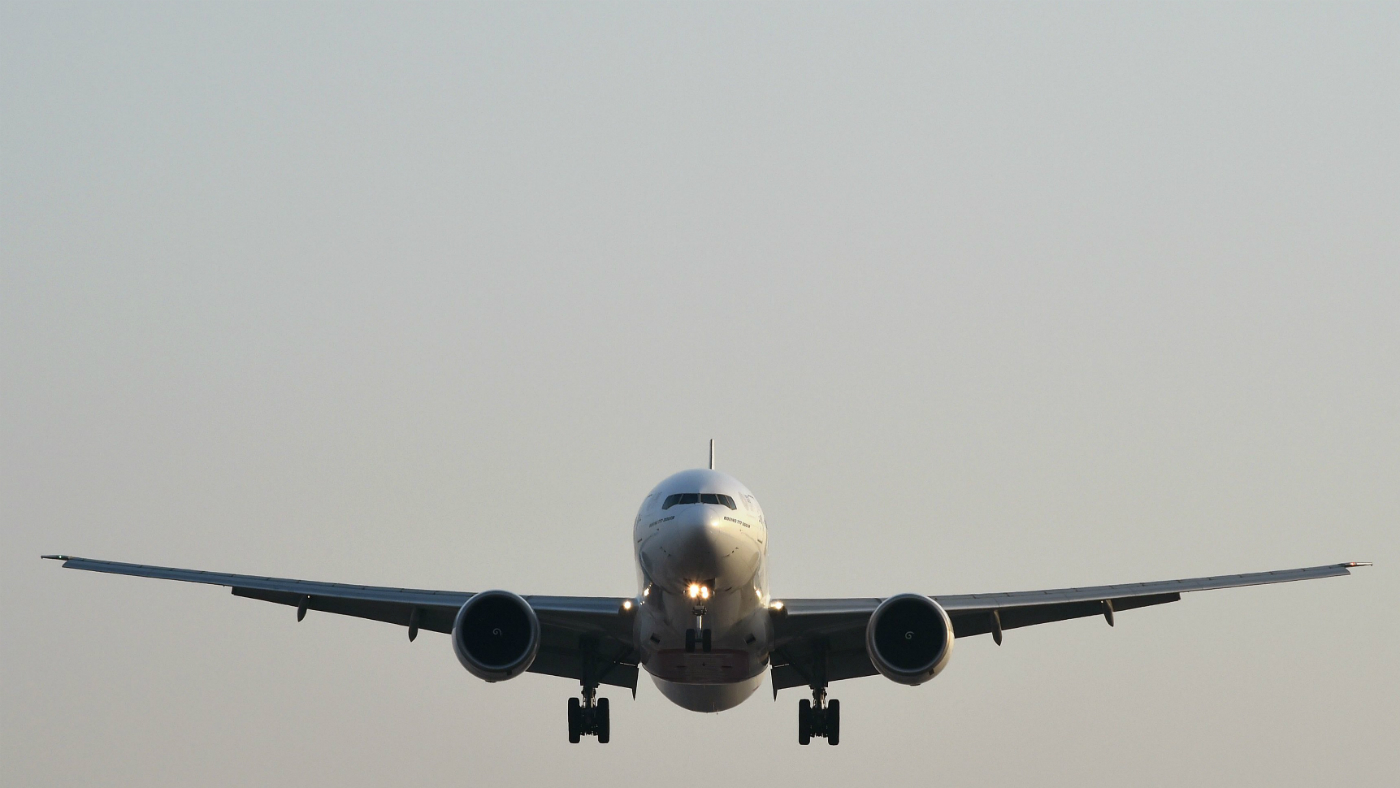How much would a carbon charge add to flight ticket prices?
Ministers considering adding a levy to airline tickets to tackle emissions

A free daily email with the biggest news stories of the day – and the best features from TheWeek.com
You are now subscribed
Your newsletter sign-up was successful
Air passengers could have a carbon charge added to the price of tickets automatically under new government plans.
In a bid to cut greenhouse gas emissions, ministers are considering measures that would ask all airlines to introduce carbon offsetting payments at the point of ticket sale.
Passengers could choose to pay more for tickets, with the extra used to offset greenhouse gas emissions. Or the payments could work on an “opt-out” system, which similar measures also be applied to trains, buses and ferries.
The Week
Escape your echo chamber. Get the facts behind the news, plus analysis from multiple perspectives.

Sign up for The Week's Free Newsletters
From our morning news briefing to a weekly Good News Newsletter, get the best of The Week delivered directly to your inbox.
From our morning news briefing to a weekly Good News Newsletter, get the best of The Week delivered directly to your inbox.
The Times calculates that a flight between London and New York could increase by just under £30, falling to £15 when travelling with the most fuel-efficient airlines. A journey between London and Madrid could rise by an estimated £5.
The Guardian says ministers hope the new plans will “raise awareness about the effects of public transport on the environment” but the Daily Mail points out that the plan could be unpopular, as it comes as “Air Passenger Duty - which is paid by all passengers flying out of the UK, continues to rise - with rates set to increase again from April next year”.
The government said it was hoped that the carbon charge move would “drive consumer choices towards less polluting journey options”. A public “call for evidence” runs until the end of September.
Transport accounted for about a third of Britain’s CO2 emissions in 2018. However, a recent study found that only half of airlines give passengers the opportunity to offset CO2.
A free daily email with the biggest news stories of the day – and the best features from TheWeek.com
Transport Secretary Chris Grayling said: “An offsetting scheme could help inform travellers about how much carbon their journey produces and provide the opportunity to fund schemes, like tree planting, to compensate for those emissions.”
Tim Aldersdale, chief executive of Airlines UK, said: “UK airlines are committed to decarbonising aviation and are working with government to continue progress through the introduction of new greener technologies, including more efficient aircraft and engines, sustainable aviation fuels and vital airspace modernisation.”
-
 The week’s best photos
The week’s best photosIn Pictures An explosive meal, a carnival of joy, and more
-
 The ‘ravenous’ demand for Cornish minerals
The ‘ravenous’ demand for Cornish mineralsUnder the Radar Growing need for critical minerals to power tech has intensified ‘appetite’ for lithium, which could be a ‘huge boon’ for local economy
-
 Why are election experts taking Trump’s midterm threats seriously?
Why are election experts taking Trump’s midterm threats seriously?IN THE SPOTLIGHT As the president muses about polling place deployments and a centralized electoral system aimed at one-party control, lawmakers are taking this administration at its word
-
 Earth is rapidly approaching a ‘hothouse’ trajectory of warming
Earth is rapidly approaching a ‘hothouse’ trajectory of warmingThe explainer It may become impossible to fix
-
 The plan to wall off the ‘Doomsday’ glacier
The plan to wall off the ‘Doomsday’ glacierUnder the Radar Massive barrier could ‘slow the rate of ice loss’ from Thwaites Glacier, whose total collapse would have devastating consequences
-
 Can the UK take any more rain?
Can the UK take any more rain?Today’s Big Question An Atlantic jet stream is ‘stuck’ over British skies, leading to ‘biblical’ downpours and more than 40 consecutive days of rain in some areas
-
 As temperatures rise, US incomes fall
As temperatures rise, US incomes fallUnder the radar Elevated temperatures are capable of affecting the entire economy
-
 The world is entering an ‘era of water bankruptcy’
The world is entering an ‘era of water bankruptcy’The explainer Water might soon be more valuable than gold
-
 Climate change could lead to a reptile ‘sexpocalypse’
Climate change could lead to a reptile ‘sexpocalypse’Under the radar The gender gap has hit the animal kingdom
-
 The former largest iceberg is turning blue. It’s a bad sign.
The former largest iceberg is turning blue. It’s a bad sign.Under the radar It is quickly melting away
-
 How drones detected a deadly threat to Arctic whales
How drones detected a deadly threat to Arctic whalesUnder the radar Monitoring the sea in the air